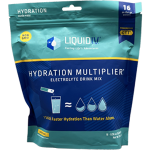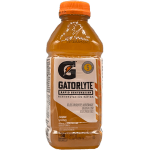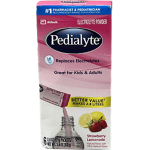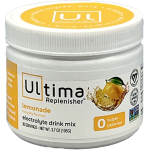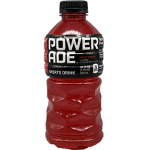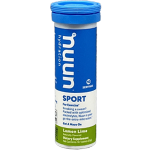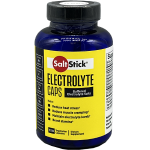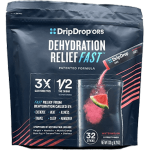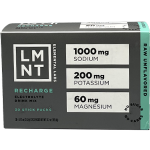Electrolytes & Sports Drinks
See Which Sports Drinks, Powders, and Pills Deliver the Right Electrolytes
Electrolyte replacement is needed for people who experience significant fluid loss or imbalances due to various conditions or activities. Some common scenarios where electrolyte replacement is necessary include:
Dehydration:
- Caused by excessive sweating, vomiting, diarrhea, or inadequate fluid intake.
Athletes and Heavy Exercisers:
- Individuals who engage in intense physical activity, especially in hot or humid environments, can lose electrolytes through sweat.
Illnesses with Fluid Loss:
- Conditions such as food poisoning, fever, and infections that lead to dehydration and electrolyte imbalance.
People with Certain Medical Conditions:
- Those with kidney disease, diabetes, adrenal disorders, or heart conditions may require electrolyte monitoring and replacement.
After Alcohol Consumption:
- Excessive alcohol intake can lead to dehydration and loss of essential electrolytes like potassium and magnesium.
Older Adults:
- Aging can affect the body’s ability to maintain electrolyte balance, making seniors more susceptible to imbalances.
People on Specific Medications:
- Diuretics, laxatives, and some blood pressure medications can cause electrolyte depletion.
Endurance Athletes or Outdoor Workers:
- Long hours of exposure to heat and physical exertion can lead to significant fluid and electrolyte loss.
Electrolytes & Sports Drinks
Who needs electrolyte replacement?
Electrolyte replacement is needed by individuals who experience an imbalance or depletion of essential electrolytes such as sodium, potassium, calcium, and magnesium. Common situations where electrolyte replacement is necessary include:
Athletes and Exercisers – Those who engage in prolonged physical activity or intense workouts, especially in hot weather, may lose electrolytes through sweat and need replenishment.
Individuals with Dehydration – Caused by excessive sweating, vomiting, diarrhea, or insufficient fluid intake, leading to electrolyte imbalances.
People with Illnesses – Conditions such as fever, food poisoning, or infections can lead to fluid and electrolyte loss.
Elderly Individuals – Aging bodies may struggle to maintain electrolyte balance due to decreased kidney function or medications that affect hydration.
Individuals with Medical Conditions – Such as kidney disease, diabetes, or heart conditions, which can impact electrolyte levels.
People on Certain Medications – Diuretics, laxatives, and medications that affect fluid balance may require electrolyte monitoring and replacement.
After Alcohol Consumption – Excessive drinking can lead to dehydration and loss of essential electrolytes.
Those on Low-Carb or Ketogenic Diets – These diets can lead to increased water loss, potentially causing electrolyte depletion.
Electrolyte replacement is needed for people who experience significant fluid loss or imbalances due to various conditions or activities. Some common scenarios where electrolyte replacement is necessary include:
Dehydration:
- Caused by excessive sweating, vomiting, diarrhea, or inadequate fluid intake.
Athletes and Heavy Exercisers:
- Individuals who engage in intense physical activity, especially in hot or humid environments, can lose electrolytes through sweat.
Illnesses with Fluid Loss:
- Conditions such as food poisoning, fever, and infections that lead to dehydration and electrolyte imbalance.
People with Certain Medical Conditions:
- Those with kidney disease, diabetes, adrenal disorders, or heart conditions may require electrolyte monitoring and replacement.
After Alcohol Consumption:
- Excessive alcohol intake can lead to dehydration and loss of essential electrolytes like potassium and magnesium.
Older Adults:
- Aging can affect the body’s ability to maintain electrolyte balance, making seniors more susceptible to imbalances.
People on Specific Medications:
- Diuretics, laxatives, and some blood pressure medications can cause electrolyte depletion.
Endurance Athletes or Outdoor Workers:
- Long hours of exposure to heat and physical exertion can lead to significant fluid and electrolyte loss.
Electrolytes can be replenished through electrolyte-rich drinks, supplements, or a balanced diet that includes sources such as fruits, vegetables, dairy, and nuts.
If electrolyte imbalances are not addressed, they can lead to various health issues, ranging from mild to severe. Some common symptoms of electrolyte imbalance include:
- Muscle Cramps and Weakness – A deficiency in electrolytes like potassium and magnesium can lead to muscle spasms and fatigue.
- Dizziness and Confusion – Low sodium levels (hyponatremia) can affect brain function, leading to confusion, headaches, and dizziness.
- Irregular Heartbeat (Arrhythmia) – Electrolytes such as potassium and calcium are crucial for heart function, and imbalances can lead to palpitations or serious cardiac issues.
- Extreme Thirst and Dry Mouth – These are signs that the body is trying to compensate for fluid loss and electrolyte depletion.
- Nausea and Vomiting – Severe imbalances can cause gastrointestinal issues and general discomfort.
- Fatigue and Weakness – A lack of essential minerals can affect energy production and muscle function.
How to Replenish Electrolytes
Electrolytes can be replenished through:
- Hydration with Electrolyte Drinks – Sports drinks, coconut water, and oral rehydration solutions (ORS) contain balanced amounts of electrolytes.
- Eating Electrolyte-Rich Foods – Foods such as bananas (potassium), dairy products (calcium), nuts (magnesium), and salt (sodium) can help restore balance.
- Using Electrolyte Supplements – Available in tablet or powder form, these can be useful for those who have trouble maintaining balance through diet alone.
- Medical Treatment – In severe cases of dehydration or imbalance, intravenous (IV) fluids with electrolytes may be required under medical supervision.
Preventing Electrolyte Imbalance
To prevent imbalances, it is essential to:
- Drink enough fluids, especially during physical activity or hot weather.
- Maintain a balanced diet with sufficient minerals.
- Be cautious with medications that affect hydration and electrolyte levels.
- Monitor symptoms and seek medical advice if necessary.
If you suspect an electrolyte imbalance, consulting a healthcare professional for proper diagnosis and treatment is recommended.
admin
Leave a Replay
About Me
Lorem ipsum dolor sit amet, consectetur adipiscing elit. Ut elit tellus, luctus nec ullamcorper mattis, pulvinar dapibus leo.
Recent Posts
Follow Us
Weekly Tutorial
Sign up for our Newsletter
Click edit button to change this text. Lorem ipsum dolor sit amet, consectetur adipiscing elit

